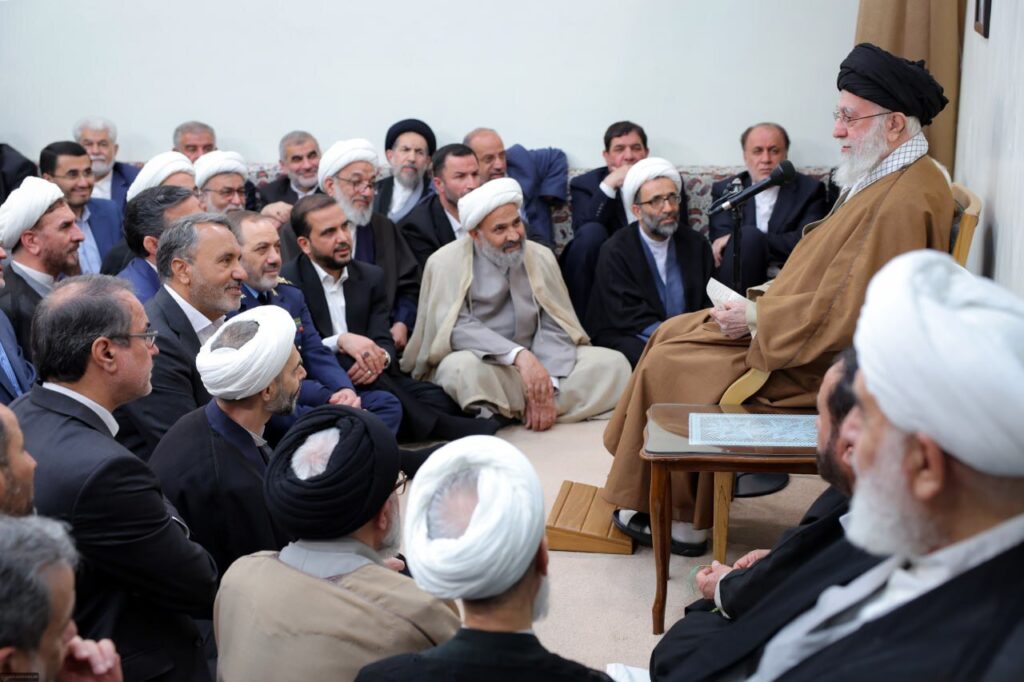“The Oman consultations are one of dozens of jobs for the Ministry of Foreign Affairs,” Ayatollah Seid Ali Khamenei, leader of the Islamic Revolution, said in a meeting with a group of senior officials from three branches of the Iranian government on Tuesday.
The leader of the Islamic Revolution also said that the country’s issues should not be linked to consultations.
“We are neither overly optimistic nor overly pessimistic about these talks,” Alitra Seyed Ali Khamenei said on Saturday that he was referring to the first round of indirect negotiations between Tehran and Washington in Oman.
After all, it was a decision and a move, and a well-implemented move in the first step, the leader noted.
He continued, “Of course we are very pessimistic about the other side, but we are optimistic about our capabilities.”
Recalling the mistakes made during the 2015 JCPOA agreement, the leader of the Islamic Revolution said, “The mistakes made at the JCPOA should not be repeated.”
“During the JCPOA, we conditioned the country and made everything depend on progress in negotiations,” he said.
“Investors don’t invest when they learn that the country is dependent on negotiations,” he emphasized.
“Negotiations may or may not have been the case. We are not too optimistic or pessimistic about them. Of course, we are very skeptical of the other party, but we are confident in our own abilities,” the leader said.
“Removing sanctions is not in our hands, it’s to neutralize them. There are many ways and there are great domestic capabilities to do so. Once this objective is achieved, the state will become impervious to sanctions,” the leader said.
Ayatollah Khamenei said the first steps in the current consultation with the US are well underway. He urged officials to continue negotiations with the same caution in the future.
The statement comes as the Omani Foreign Minister is acting as a mediator after Iran and the US held talks in Omani’s capital last Saturday.
The Islamic Republic argues that the talks are intended to address US illegal, unilateral sanctions on the country, and various aspects of Iran’s nuclear energy program strongly reject speculation about processes involving other issues.
The United States lifted some of its sanctions in accordance with the Joint Comprehensive Plan of Action (JCPOA), the historic 2015 nuclear agreement between Iran and the world’s greats. However, Washington returned the ban three years after the end of the contract and began to pile up more mandatory measures in the Islamic Republic. The US has called its hostile approach “maximum pressure” and has seen American officials repeatedly threaten to use military force against Iranian soil.
Meanwhile, the Islamic Republic emphasizes that direct negotiations with the US will be useful or unacceptable for Tehran, as long as Washington holds hostile policies.
MNA/

